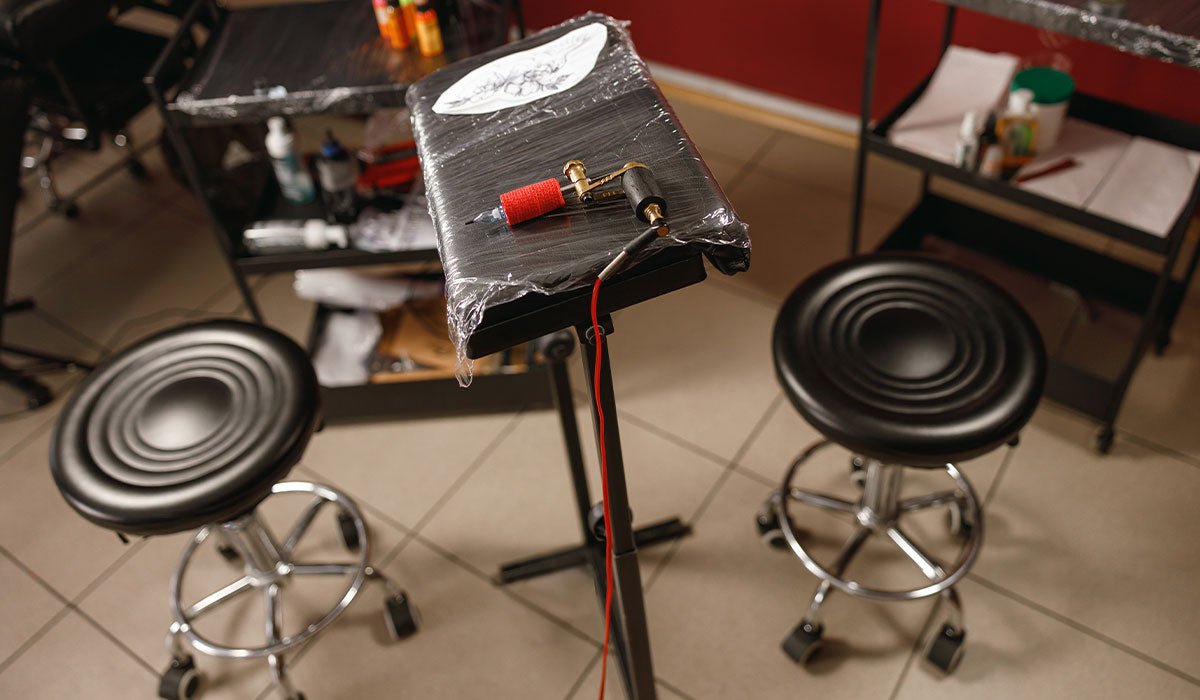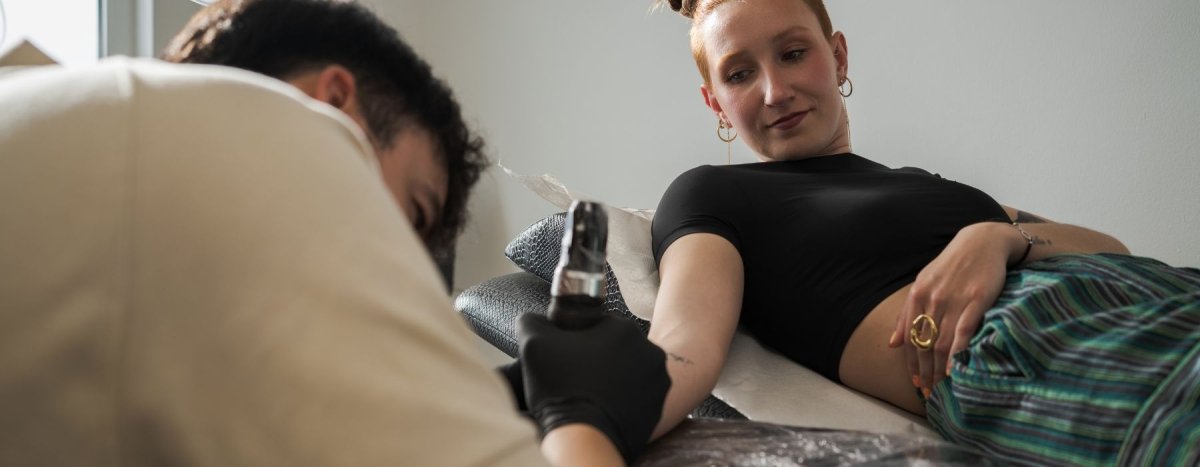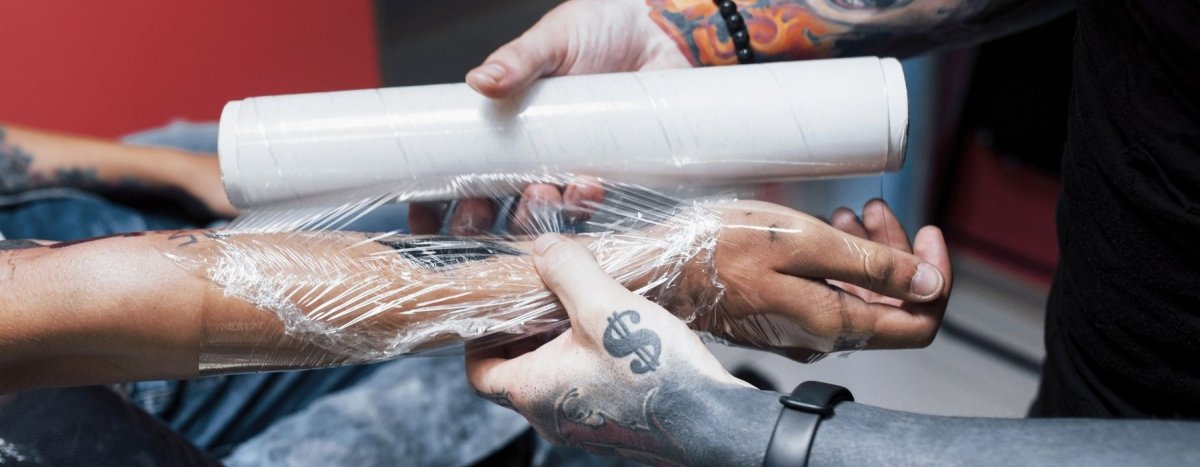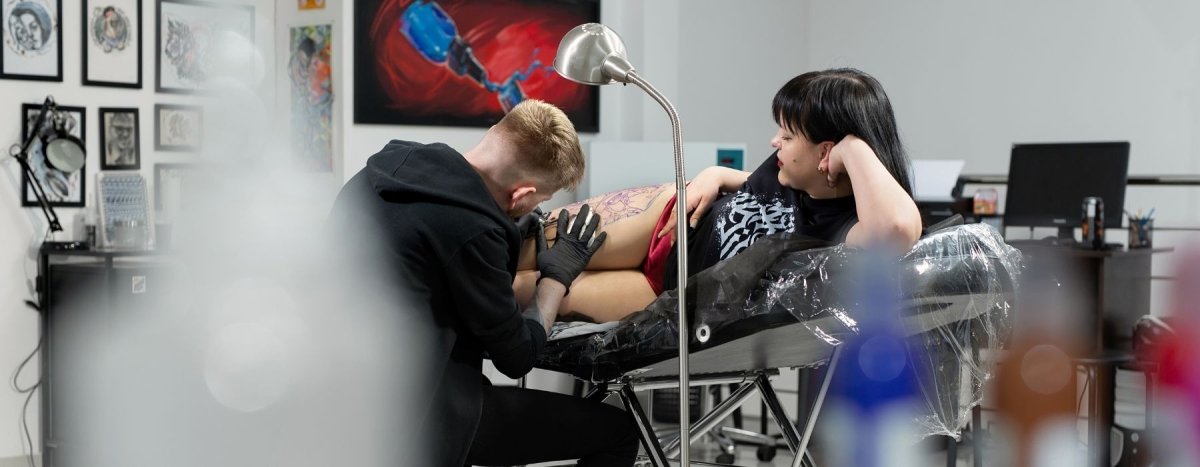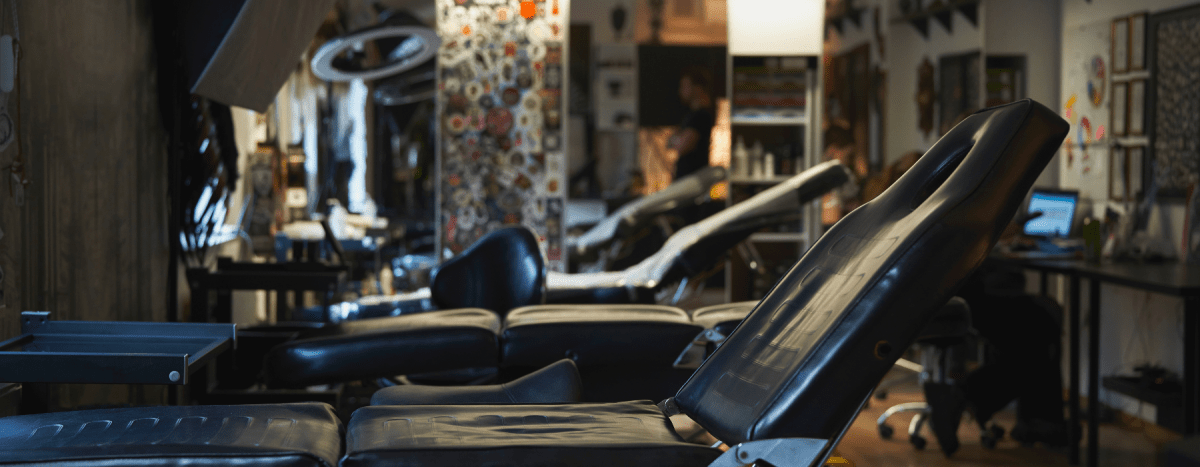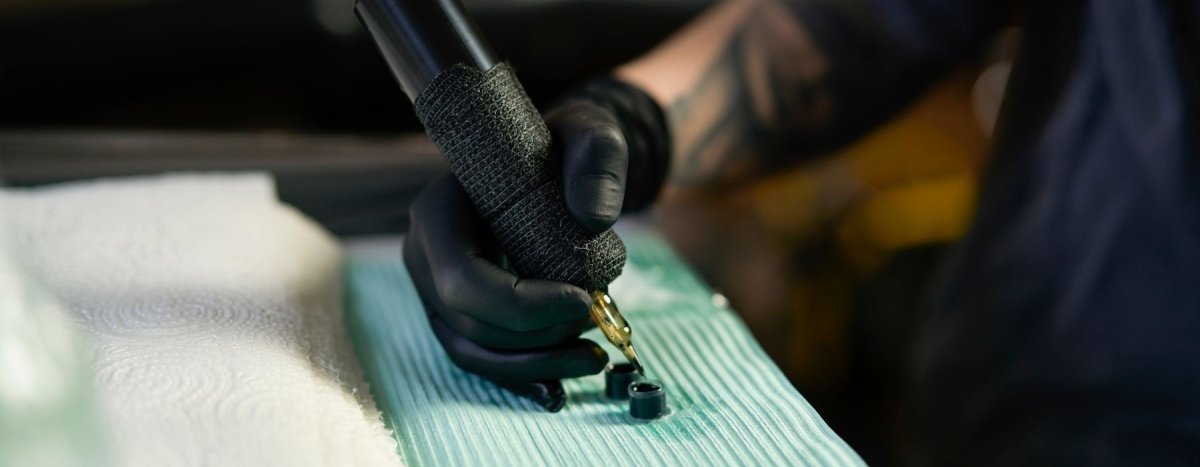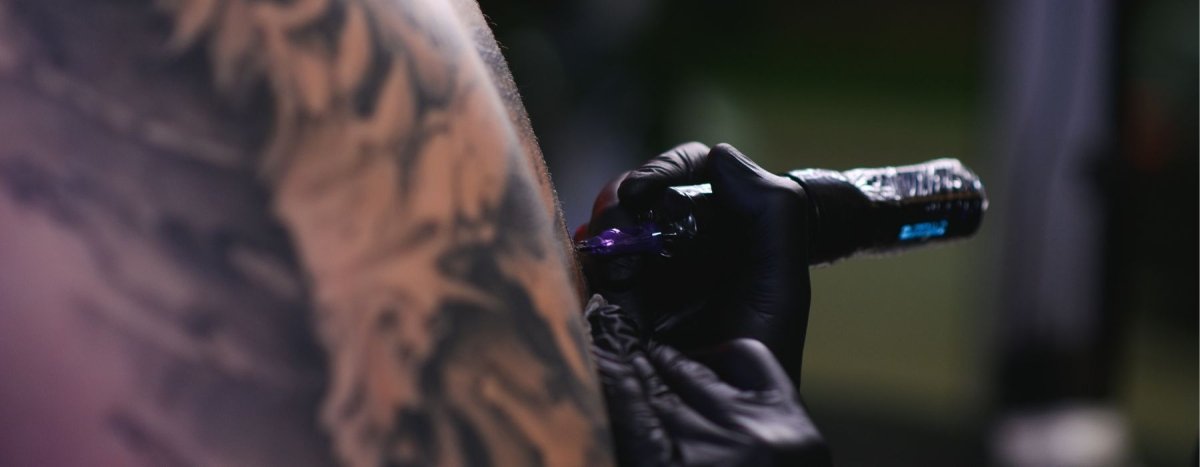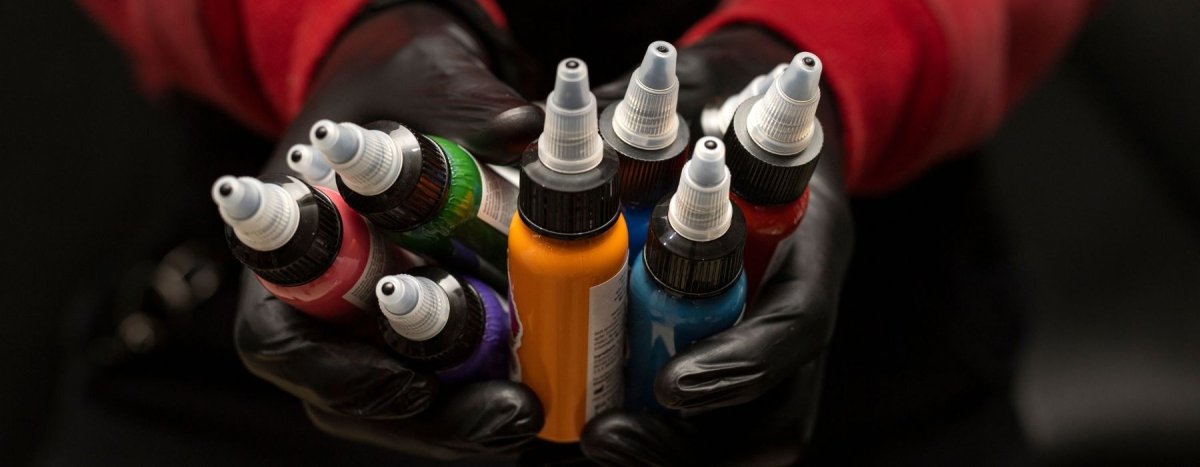Your cart is empty
Looks like you haven't added anything to your cart yet
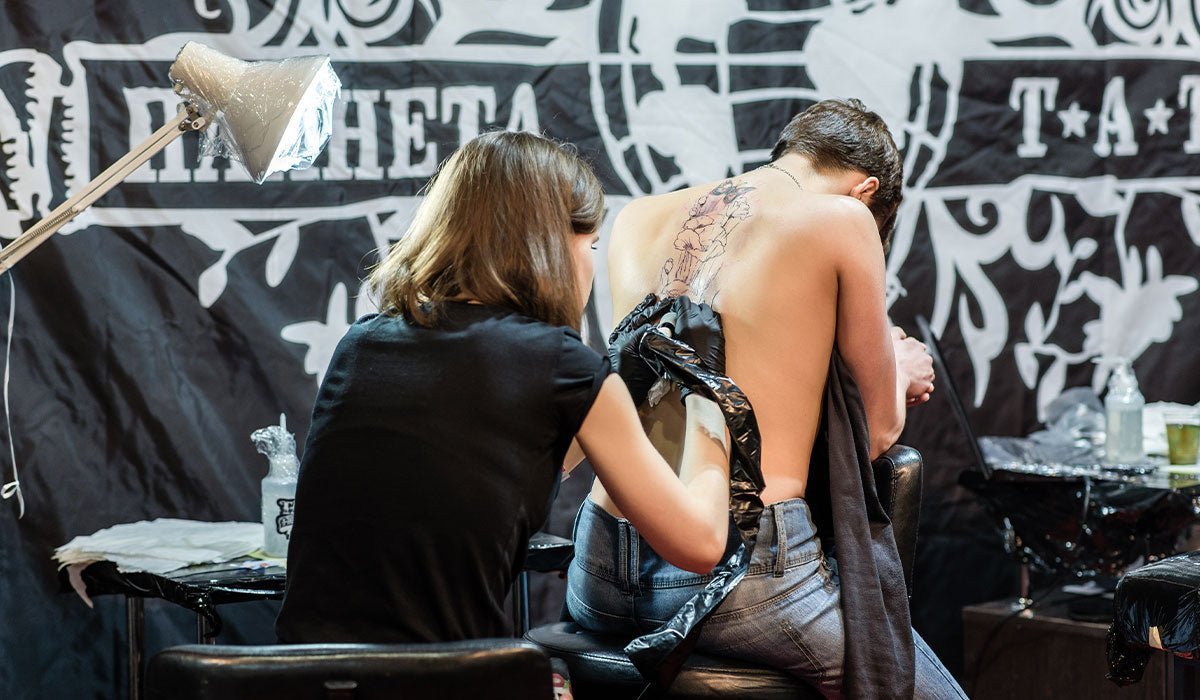
How Do Tattoo Artists Earn Their Income?
Getting a tattoo can be pretty expensive, even for small designs that can start at around $100 or more. And because many clients prefer to pay in cash, you might think tattoo artists are rolling in the dough.
But here's the scoop: even though some people think tattoo artists are making a ton of money, the truth is that many of them are self-employed and have to deal with various business expenses. They have to shell out money for equipment, supplies, studio rent, and marketing, and all of these costs can dig into their earnings.
Tattoo artists usually get paid for each tattoo they do, and the amount can vary based on things like the size and complexity of the design. In cases where they work in a studio they don't own, the studio owner might take a cut from each tattoo. The details of this arrangement, including the percentage split between the studio and the artist, can differ depending on the contract they have in place.
Payment 101 for Tattoo Artists
Alright, let's talk about getting paid if you're a tattoo artist. Tattooing is booming right now, but handling your finances can be a bit tricky, and lots of artists find it tough to manage their earnings. To make sure everything goes smoothly, it's a good idea to work out the payment details with your client before you start tattooing, and most people prefer paying in cash. Invoicing can get a bit messy when it comes to splitting the money with the tattoo parlor, and getting banks and online payment platforms involved can just add extra stress.
Once you've got your cash in hand, it's a smart move to set aside some money for things like self-employment taxes and business expenses before you pay yourself. This kind of financial planning is pretty crucial if you want to do well in the tattoo industry in the long run.
The Apprenticeship
So, here's the scoop on how tattoo artists kickstart their careers: they begin as apprentices, and it's all about learning the craft through hands-on experience. Even though they're not tattooing clients just yet, they still get paid for their work. Usually, apprentices get a fixed weekly salary, kind of like regular employees. This money is for helping out the tattoo artist with all sorts of tasks like cleaning up, setting up equipment, assisting with designs, doing stenciling, and practicing with tattoo machines.
Think of it like an on-the-job training or an internship. Apprentices get this valuable experience under their belts to get them ready for their future gigs as full-fledged tattoo artists.
Chair Rental
So, here's the deal with tattoo artists - they're usually considered independent contractors, which means they get to call the shots when it comes to their work hours, picking clients, and choosing where they want to work. If they don't have their own studio, they often rent a space. They can rent a chair or a private booth in a tattoo parlor where several artists work together at the same time. Alternatively, they might rent from an individual who has their own workspace.
When they rent, it usually involves paying a weekly or monthly fee, or sometimes giving a percentage of their earnings from each tattoo. This way, they get to work in a professional and well-equipped place without the heavy cost of owning their own studio.
Fixed Fees
Paying a predetermined fee to the shop owner is quite similar to securing your personal workspace, and it often includes the added perk of having all the necessary equipment and supplies at your disposal. Typically, this arrangement involves a monthly fee, let's say around $500, regardless of how much the artist earns. This setup can offer some stability for the artist, but it can also pose a challenge when they experience a slow month with only a handful of clients. If the artist's earnings don't match or exceed the monthly fee, it can become a financial burden.
Commission
Instead of dishing out a fixed monthly fee, some tattoo parlor owners prefer to go the commission route, giving artists a break from the pressure of a set rent. Usually, this commission setup means a 50/50 split between the artist and the owner, though the artist usually gets a slightly bigger share per tattoo. To make sure the artist gets fair compensation, tipping is often encouraged when they're paying a commission for their workspace. This tipping practice helps artists bring in a more comparable income to what they'd earn if they had their own shop.
Going Solo
When a tattoo artist has their very own workspace, they can dodge the whole commission thing with a shop owner. Instead, they'll be paying rent to a landlord for the spot they're using. Some artists might even opt for setting up a home studio, transforming a spare bedroom, attic, basement, or a separate structure into their work haven without having to shell out extra rent.
With their own space, tattoo artists get to pocket all the earnings from each appointment they book. Tipping is still a nice gesture, but it doesn't carry the same weight as when artists are sharing their income with a shop owner.
Other Expenses
Having their own workspace might mean tattoo artists can skip out on commissions, but it doesn't mean they're in the clear when it comes to expenses. The cash they earn isn't just for their personal stuff like food, a roof over their heads, and some fun, a big chunk of it goes right back into running their tattoo business.
Workspace Costs
Opting to rent a space outside of a tattoo parlor can end up being quite pricey for tattoo artists. However, going for a rental spot within a tattoo parlor can come with the added perk of not having to shoulder the cost of purchasing all the necessary equipment and materials. These essentials might be included in the rent or commission agreement, making it a more cost-effective choice.
Materials Costs
Being a tattoo parlor owner means you've got to stay on top of keeping your equipment in tip-top shape, and the cool thing is, you can write it off as a business expense. Sure, it might look like a big chunk of money upfront, but investing in high-quality chairs and top-notch tattoo machines is a must. They last longer and are essential for delivering top-notch service to your clients. Now, if you're using disposable tubes, that's an extra expense, but if you're using reusable ones, you can think of the sanitation machines as a valuable business asset.
But wait, there's more! Besides equipment, you've got to factor in the cost of ink, and that's not pocket change either. Tattoo artists also need to keep consumables like gloves, tissues, needles, stencils, aftercare goodies, rubbing alcohol, and razors on hand. These are all part of the service, so a part of what you earn goes back into covering these costs and building up your assets.
Employees
Tattoo artists could also have some extra expenses linked to their personnel. This might involve shelling out some cash to pay an apprentice or bringing someone on board to manage things like front desk duties and administrative tasks, although a lot of artists handle these themselves.
Now, since they're self-employed, they might consider getting help from an accountant when it comes to taxes. It's not something they have to do, but many opt to outsource their accounting duties. This way, they can focus on their tattooing gig and steer clear of the tricky world of accounting.
Compensation for Tattoo Artists
Tattoo artists get paid in different ways, and they usually put most of their earnings back into their craft. If your tattoo artist operates on a commission basis, it's a thoughtful gesture to leave a tip as a way to show your gratitude. Supporting your tattoo artist in maximizing their income is definitely appreciated.
It's worth remembering that while getting a tattoo can be a bit pricey, the artist doesn't get to keep the full payment, so tips can make a real difference.
Featured Blogs
- Choosing a selection results in a full page refresh.




